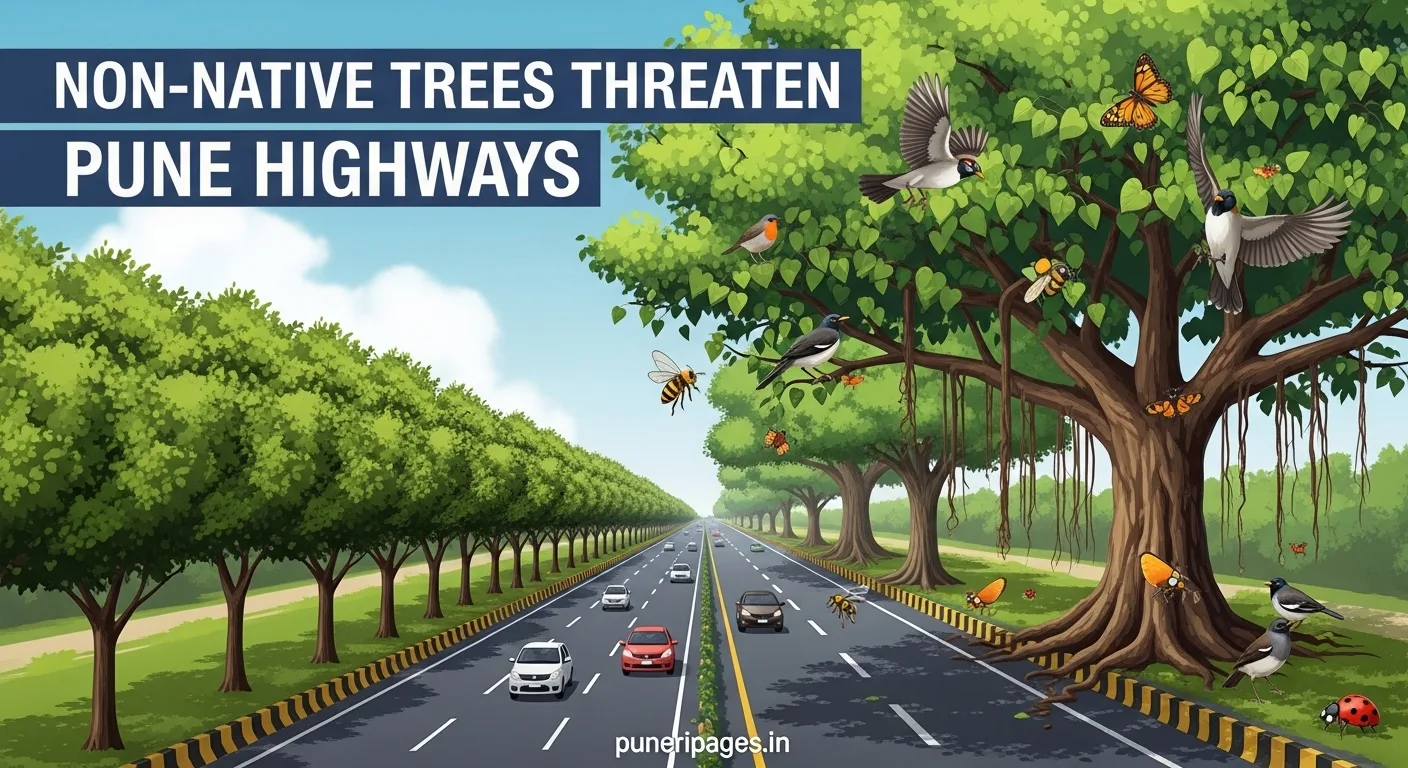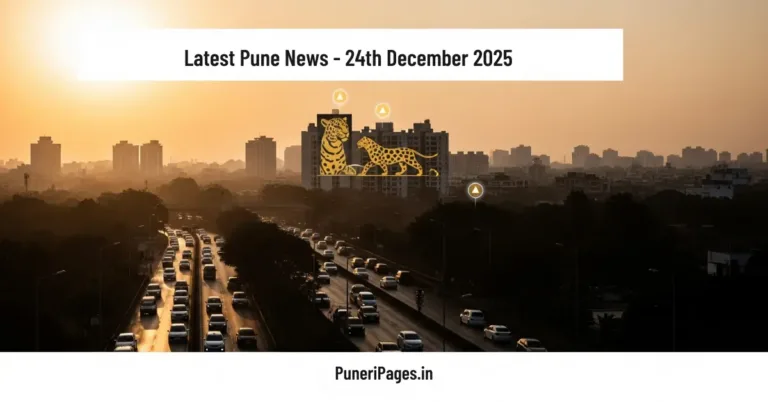
Environmentalists raise concerns over non-native trees along Pune and Satara highways, urging a shift to native species to protect biodiversity. Image by puneripages.in
By Prashant for PuneriPages.in
PUNE: While the greening of highways in Pune and Satara districts appears to be a positive step, environmentalists are sounding an alarm over the choice of trees being planted. They argue that the widespread use of non-native, exotic species instead of indigenous ones poses a significant threat to the local ecosystem, creating green corridors that fail to support local wildlife.
Table of Contents
The Core Problem: Native vs. Non-Native Species
Native trees such as Banyan, Peepal, and Neem have been part of the region’s ecosystem for centuries. They provide food, shelter, and nesting spaces for birds, insects, and other wildlife, helping maintain a balanced ecological network.
By contrast, non-native or exotic trees like Conocarpus and Gulmohar may grow quickly or look aesthetically pleasing, but local wildlife is often ill-equipped to utilize them. Some of these species can even become invasive, harming soil health and out-competing native plants, creating what experts term “biological deserts.”
The Situation on the Ground in Pune and Satara
Environmentalists have observed that along highways managed by the National Highway Authority of India (NHAI), contractors are planting fast-growing exotic species. While this may meet contractual deadlines or create uniformity, it fails to consider ecological consequences.
“These plantations may look green, but they provide almost no food or habitat for our local fauna,” said a local environmentalist, emphasizing the hidden costs of this approach.
A ‘Biological Desert’: The Consequences of Wrong Plantation
Non-native plantations disrupt the food chain: without native insects, birds lose their food source; without fruit-bearing trees, mammals and other animals are left hungry. The ecological ripple effect can diminish biodiversity along these corridors and affect surrounding landscapes.
The Call for a Policy Shift
Environmental experts are urging the Forest Department and NHAI to revise plantation policies, mandating native, fruit-bearing, and shady trees suitable for local climates. They argue that such a policy would ensure that highway greening initiatives genuinely support biodiversity while still beautifying the roads.
Sourcing & Authoritative Links:
- National Highway Authority of India (NHAI)
- Ministry of Environment, Forest and Climate Change (MoEFCC)






